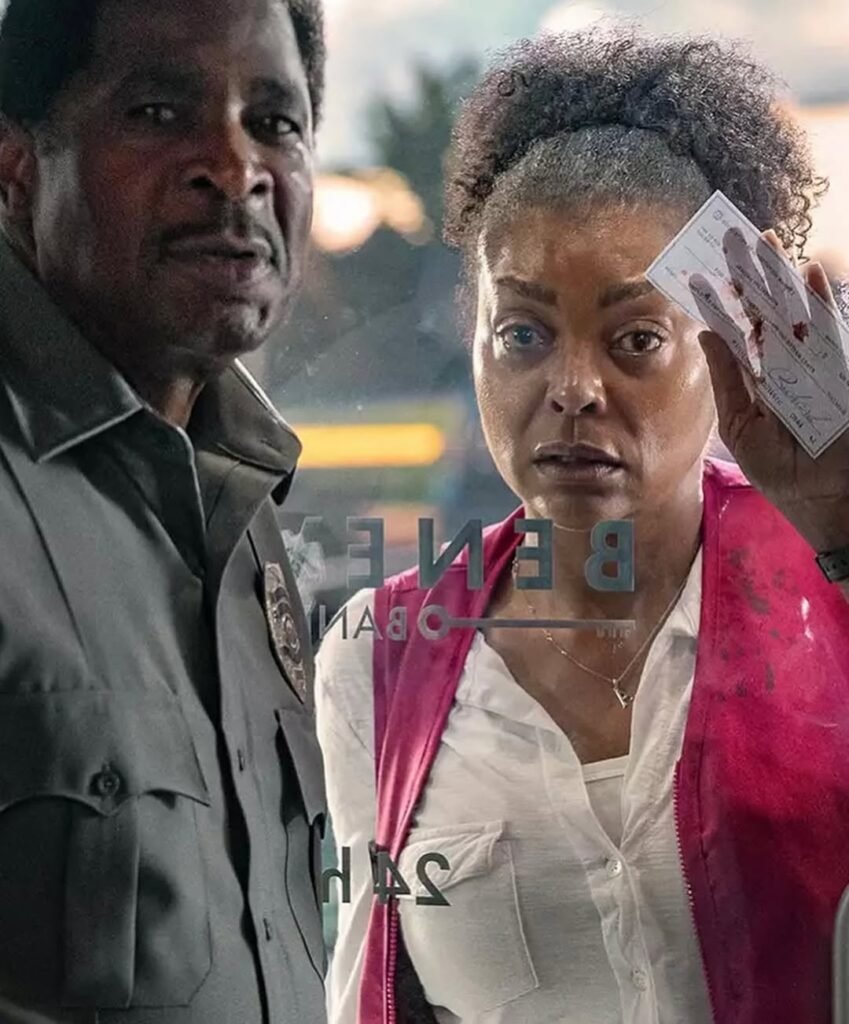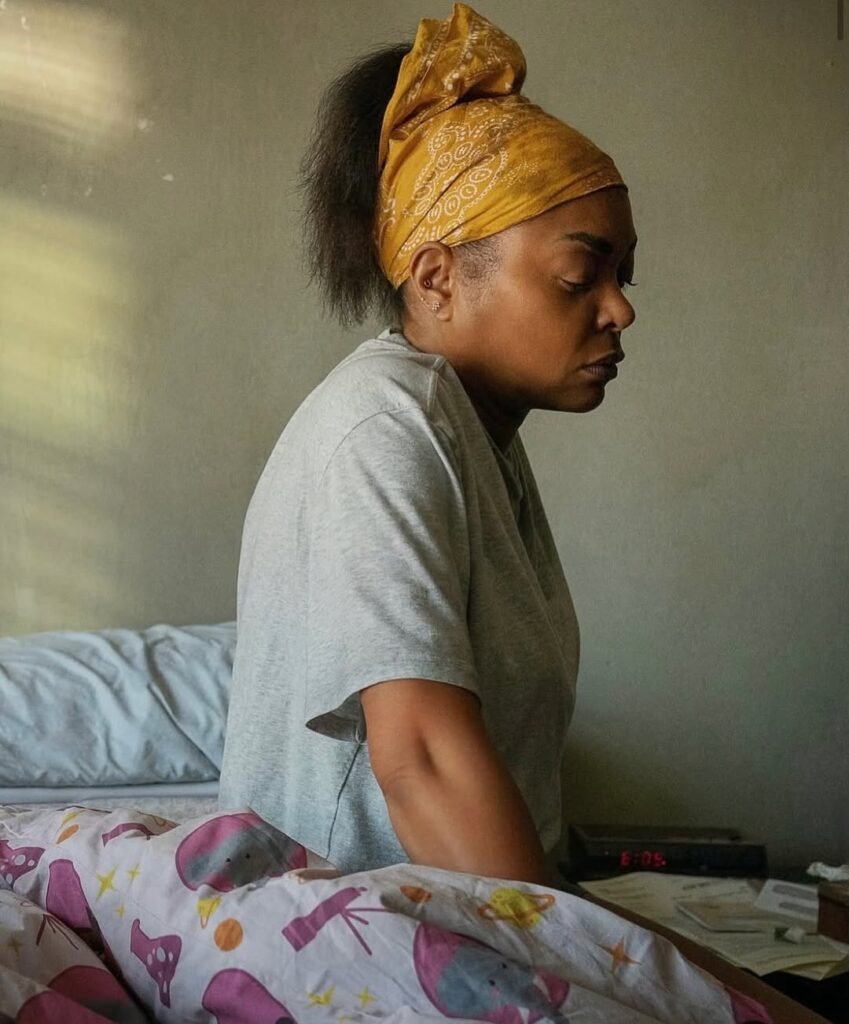What if your last cry for help was only heard by yourself?
In Straw, Tyler Perry leaves behind his usual emotional style for something much darker and more real. This heavy drama follows Janiyah Wiltkinson (played by Taraji P. Henson), a single Black mother who is losing everything—her job, her home, and her hope. When all the systems meant to support her fail, she snaps—committing a desperate bank robbery that turns into a hostage situation.
But this isn’t a typical crime movie. Perry’s latest film is quiet, painful, and deeply personal. At the center of it is a performance that stays with you long after the film ends.

Taraji P. Henson gives one of the most powerful performances of her career. She filmed all her scenes in just four days, and still manages to show a woman slowly falling apart from the weight of life’s struggles.
“The role scared me—but it gave a voice to the voiceless,” Henson told People.
Her character doesn’t beg for pity—she asks to be seen. One line stands out:
“I did everything right… and still lost everything.”
It cuts through the movie like a scream in a quiet room.
Comedian Sinbad, who had a stroke in 2020, returns to acting as Benny, a janitor caught in the chaos. His gentle presence adds heart and emotion to the story.
Sherri Shepherd and Teyana Taylor also shine, with Taylor’s quiet role saying a lot—even without many words.
The film was shot in May and June 2024 at Tyler Perry Studios. Almost everything takes place inside one bank, which makes the story feel more intense and closed-in.
There’s barely any music. The silence and slow pace make room for the emotions and pressure to build. Perry says this is his “most painful and honest” work so far.

Straw doesn’t offer easy answers. It deals with:
The pain of losing your home and job
Mental health in Black communities
Being ignored by systems like housing, health care, and child protection
Grief so deep it changes your sense of reality
“What happens when no one sees how close you are to breaking?”
That’s the hard question Straw asks.
Halfway through the film, something changes. What feels like a real crime story starts to feel different. In the last part of the film, we learn the robbery never happened. Janiyah’s daughter is already dead. The entire event is a hallucination caused by grief and untreated mental illness.
It’s Perry’s boldest and most emotional storytelling yet—and not everyone will agree with it.

Critical reviews
The Washington Post said:
“One of Perry’s most emotional and real films. Henson gives a fearless performance.”
The Guardian was more mixed:
“Powerful, but still feels a bit dramatic. Perry struggles to keep it grounded.”
Decider wrote:
“Another imperfect but heartfelt film. The twist is shocking, but not fully built up.”
Still, most people agree:
Henson’s performance is award-worthy, and Perry is taking brave new steps.

Taraj P. Henson who played Janiyah
On TikTok, clips of Janiyah’s breakdown have gone viral under #StrawNetflix. Many viewers post tearful reactions, calling the film “too real to watch comfortably.”
On Twitter/X, fans are calling it “Perry’s Joker moment.”
Mental health advocates say the film shows the real damage of untreated trauma—especially in poor communities.
This isn’t like Perry’s other films, which often mix drama with comedy or hope. Straw is darker, slower, and more serious. It’s about being alone, feeling broken, and shouting into silence.
It’s not perfect. But it is important.
“Straw isn’t a movie you watch over and over. It’s a movie you feel—and think about.
In a world where more people are talking about mental health, but poverty and loss still go unseen, Straw hits hard. Perry lets go of his usual style and shows us something more true:
A woman breaking—and a world that didn’t hear her in time.







